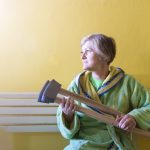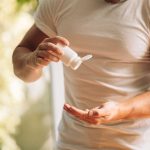Few people receive effective therapy in opioid overdose treatment
A recent study in the Canadian Medical Association Journal (CMAJ) reveals a concerning gap in the treatment of opioid use disorder (OUD) following hospital...
Scientists find how to treat chronic migraine headaches
Researchers from QUT have uncovered a biological mechanism behind the reduction in migraine frequency observed in chronic migraine sufferers after gradually discontinuing migraine medications.
This...
Common sedative drugs linked to higher risk of bone fractures
The global consumption of sedative-hypnotic medications is on the rise, particularly in affluent regions like Hong Kong.
Researchers at the University of Hong Kong (HKUMed)...
This drug may treat persistent hand pain
Have you or someone you know been struggling with relentless hand pain that refuses to go away?
The pain can make simple daily tasks like...
AI can detect risks of fall and bone fracture in older women
Edith Cowan University (ECU) researchers have developed an innovative automated machine-learning algorithm to accurately assess abdominal aortic calcification (AAC) during routine bone density testing....
More Americans turn to alcohol to dealt with pain than Canadians
Many people experience pain in their daily lives, and they employ various methods to manage or alleviate it.
A recent study conducted by researchers at...
Vitamin K1-rich diet may reduce fracture risk in older women
As we age, the risk of fractures, especially hip fractures, becomes a significant concern, leading to disability and even higher mortality rates.
However, a study...
Blood pressure drugs boost brain’s natural opioids, may treat opiate addiction
In a breakthrough study published in Science, researchers from the University of Minnesota Medical School have uncovered a surprising effect of blood pressure medications...
This treatment benefits some chest pain patients
A recent study led by researchers at Imperial College London and Imperial College Healthcare NHS Trust suggests that some patients with chest pain due...
Patients get fewer opioid prescriptions after surgery, study finds
A study published in JAMA Network Open highlights the trends in post-surgery pain relief prescriptions over the past seven years, with a focus on...










